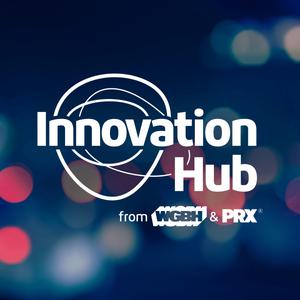
Innovation Hub
Matt Purdy
Produced by PRI and WGBH
- 50 minutes 23 secondsThe People Powering AI Decisions
The 1964 Supreme Court Case Jacobellis v. Ohio presented a highly subjective question to the justices: what is obscenity or pornography? How do you define it? Where do you draw the line? In response, Justice Potter Stewart gave us the iconic line, "I know it when I see it."
His ambiguous answer works fine for humans who can make judgement calls on the fly, but the algorithms that rule our lives need rules that are much more concrete. Say you flag something as inappropriate on social media. How is artificial intelligence meant to answer a question that even the Supreme Court could not definitively pin down?
That’s where humans come in. Mary Gray, an anthropologist and co-author of the book,“Ghost Work: How to Stop Silicon Valley From Building a New Global Underclass,” explores the work and lives of the real people behind online processes that internet users may assume are purely algorithmic. From analyzing medical tests, to flagging questionable social media posts, to identifying your rideshare driver, Gray argues that the human touch of “ghost work” is not only essential, but this hidden workforce will continue to keep growing.
8 October 2021, 8:00 am - 31 minutes 55 secondsThe Lost Art of Listening
We have become accustomed to politicians shouting at each other, and confrontational TV talk show hosts who do anything but listen to their guests, but how good are any of us at truly focusing on the words of others in our conversations?
Listening is a lost art, according to Kate Murphy the author of “You're Not Listening: What You're Missing and Why It Matters,” and the cost to our health, our relationships, and our society is steep, she says. Murphy explains how the modern world has shaken our capacity for deep listening and what we can do about it.
1 October 2021, 8:00 am - 17 minutes 48 secondsThe Evolution of Play
Childhood today is radically different than it was just a few generations ago. Before the coronavirus pandemic, kids’ busy schedules included school, homework, chores, sports, music lessons and other activities. Those packed schedules often left out one key element that is crucial to growth and learning — play. That’s according to Dorsa Amir, a postdoctoral researcher and evolutionary anthropologist at Boston College.
Amir has studied the Shuar people of Ecuador, a non-industrialized society, and observed startling differences in how Shuar children and American children spend their time. She tells us how childhood has changed drastically, and how that affects kids today.
1 October 2021, 8:00 am - 50 minutes 25 secondsWhen Romance Meets Ratios
In 2019, women hit a milestone in gender parity when they became the majority of the college-educated workforce. While it may be easy to see how this achievement will impact the economy, earnings, and job opportunities, it is probably a little bit harder to predict how it will shape, of all things, the dating market. Jon Birger, a business journalist and former senior writer at Fortune, has authored two books on the connection between ratios and relationships. Birger acknowledges that not everyone has a desire to engage in a heterosexual relationship or get married. But of those who do, college-educated women may have a particularly hard time finding a partner, he notes.
Birger says this is because there are many fewer men enrolled in college - about 60% of college freshmen are now women. Men also drop out of college at higher rates, resulting in a dating market with a shortage of college-educated men. When this gender asymmetry is extended into broader society, Birger explains it can have significant consequences for people’s happiness, fertility rates, and the economy. And Andrew Cherlin, a professor of public policy at Johns Hopkins University, talks with us about his - related - new research on changing marriage rates for college and non-college educated Americans.
24 September 2021, 8:00 am - 49 minutes 51 secondsWhy Exercise?
Exercise is a relatively recent phenomenon. After all, it’s difficult to imagine a caveman on a treadmill. And it’s safe to say that paleolithic humans never pumped iron. But something changed as we moved from the plow to the Peloton. Exercise - physical exertion for the purpose of improving health or fitness - became a huge part of modern life, and a nearly $100 billion global industry.
But why do we spend so much time and money at the gym or on the track and does it actually help our well-being? And why is exercise, at least for some of us, such a miserable experience?
Daniel Lieberman, professor of human evolutionary biology at Harvard University and author of the book “Exercised: Why Something We Never Evolved to Do Is Healthy and Rewarding,” has some fascinating answers.
17 September 2021, 8:00 am - 50 minutes 23 secondsHow Gay Marriage Won
In the decades since Roe v. Wade, public sentiment about abortion has remained fairly steady. By contrast, in the mid-1990s, only around a quarter of the country supported gay marriage, and then, somehow, just 15 years later, those numbers had nearly doubled. Sasha Issenberg, author of “The Engagement: America’s Quarter-Century Struggle Over Same-Sex Marriage,” tracks the twists and turns that the fight for same-sex marriage in America took, from a power struggle over a parade in Hawaii, to shifts in elite opinion, which all brought gay marriage from a “quirky,” niche issue in the 90s to being federally accepted by 2015.
10 September 2021, 8:00 am - 50 minutes 23 secondsWill The Future of Work Leave Workers Behind?
The U.S. economy has come a long way since the darkest days of the pandemic, but the future remains uncertain for many, especially those hit the hardest: low-wage workers. Last April, David Autor, an MIT economist, predicted that a pandemic-induced recession would be an “automation forcing event,” with executives rapidly deploying non-human labor to replace workers, particularly in the service sector - and he was right.
Autor and Betsey Stevenson, who served as chief economist at the U.S. Department of Labor and is currently a professor of economics and public policy at the University of Michigan, discuss COVID-19’s long-lasting impact on the ways employees will work, consume and manage family dynamics, for years to come.
3 September 2021, 8:00 am - 50 minutes 25 secondsHow the West Dominated Our Brains
About 1500 years ago, the world was a very different place; Pope Gregory was spreading Catholicism far and wide, a plague was running rampant, and some dominoes were about to start falling. The end of that cascade would end up in a world where a certain group of people started to think quite differently from those who had come before them. Their brains began to change, the societies they built thrived and they grew so influential and culturally dominant that their way of thinking permeated our entire psychology. In other words, it created W.E.I.R.D. people — a Western, educated, industrialized, rich, and Democratic population that grew into a global powerhouse.
That’s according to Joseph Henrich, chair of the department of human evolutionary biology at Harvard University, and author of “The WEIRDest People in the World: How the West Became Psychologically Peculiar and Particularly Prosperous.” He writes that people who learn to read, who are educated in a Western way – no matter where they live in the world – have brains that look and think unlike more traditional human brains.
27 August 2021, 8:00 am - 49 minutes 49 secondsFIXED: Walter Isaacson on How Gene Editing Will Change Life
Walter Isaacson has made a habit of profiling world-changers: innovators who, through their discoveries, upend the way we live. Recently, he’s been preoccupied with individuals who have unlocked what he calls “fundamental kernels of our existence” - first Albert Einstein and the atom, then Steve Jobs and the bit, and now, in his latest work, Jennifer Doudna and the gene.
In The Code Breaker, Isaacson dives into the CRISPR revolution and how the booming field of gene editing is altering how we treat disease and think about what it means to be human. Jennifer Doudna, who shared the 2020 Nobel Prize in Chemistry for her role in developing CRISPR, is Isaacson’s centerpiece as he guides readers through this new frontier, and the pressing moral questions that sophisticated, cutting-edge biological tools now pose.
** This episode has been reuploaded with the correct audio.
24 August 2021, 7:54 pm - 30 minutesSal Khan on Leveling the Playing Field, In and Out of the Classroom
Educators around the country were plunged into a massive experiment with virtual learning last year, when more than 50 million K-12 students were sent home at the start of the pandemic. Many were soon knocking on the door of the father of online education, Sal Khan, looking for help. The founder and CEO of the nonprofit Khan Academy, which provides free educational resources to anyone who wants them, says he was impressed with the “heroic efforts” of numerous school districts to close the digital divide, by providing device and internet access for all who needed it. Now Khan hopes school leaders “are going to be thinking long-term” and will seize the moment to create what he considers much needed system-wide change.
13 August 2021, 8:04 am - 20 minutes 12 secondsPandemic Politics Hit the Classroom
All over the country, school districts are grappling with how to safely reopen classrooms in the midst of a resurgent pandemic. While many have already made decisions about in-person learning, state and local governments are clashing over mask mandates and vaccination requirements. Edward-Isaac Dovere, a staff writer for The Atlantic and author of “Battle for the Soul: Inside the Democrats' Campaigns to Defeat Trump,” discusses the political and practical implications of such divergent reopening policies.
13 August 2021, 8:01 am - More Episodes? Get the App
Your feedback is valuable to us. Should you encounter any bugs, glitches, lack of functionality or other problems, please email us on [email protected] or join Moon.FM Telegram Group where you can talk directly to the dev team who are happy to answer any queries.
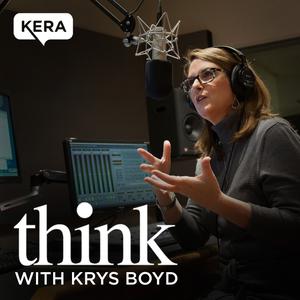 KERA's Think
KERA's Think
 Radio Boston
Radio Boston
 Aspen Ideas to Go
Aspen Ideas to Go
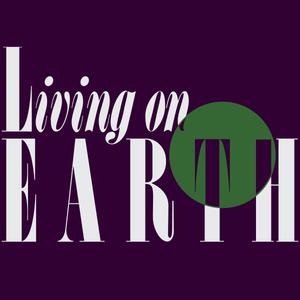 Living on Earth
Living on Earth
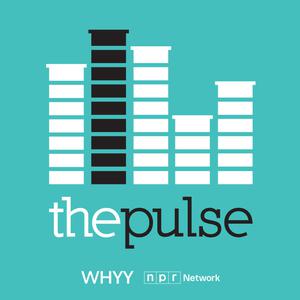 The Pulse
The Pulse
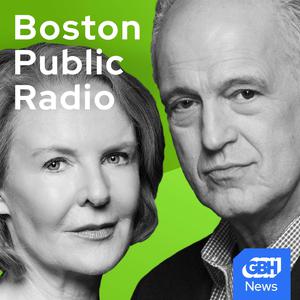 Boston Public Radio Podcast
Boston Public Radio Podcast